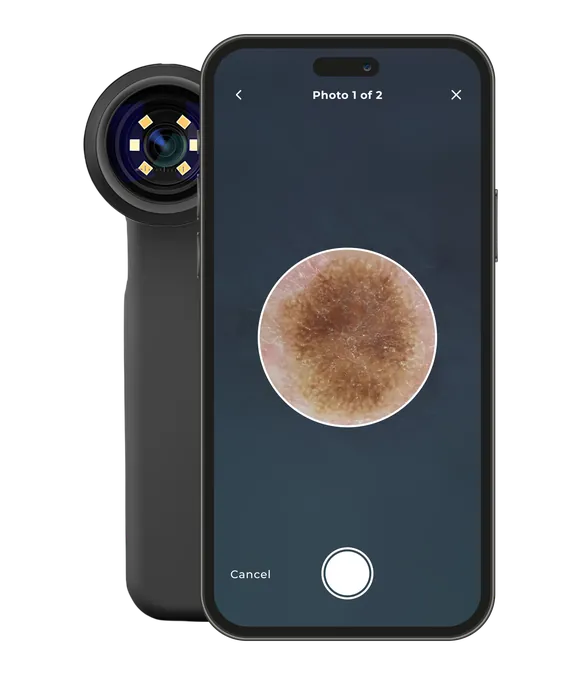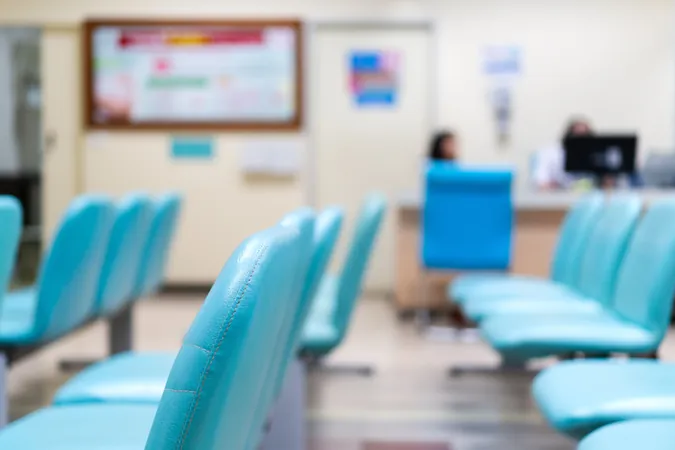
Revolutionary Mobile App Halves Skin Cancer Referrals, Transforming Healthcare in the UK!
2025-04-02
Author: Wei
Introduction
A groundbreaking mobile application designed to aid in the detection of skin cancer has achieved a staggering reduction of over 50% in hospital referrals during a trial at three primary care clinics within Britain’s National Health Service (NHS).
The Map My Mole App
Launched in March 2024, the Map My Mole app is revolutionizing the diagnostic process by assessing more than 1,500 moles and lesions effectively and efficiently, according to developers. The innovative app involves a small lens attachment for patients’ smartphones, enabling them to capture high-quality images of potentially concerning skin spots. These images are sent for expert evaluation by dermatology consultants, significantly cutting the need for traditional referrals for many benign cases.
Impact of the Trial
Dr. Toby Nelson, a dermatologist involved in the trial, shared with the BBC, 'At the three sites involved, we have witnessed a reduction of over 50% in GP-to-hospital referrals. Where GPs previously spent approximately 15 minutes assessing a mole, the online image review now takes just two to four minutes.'
The trial also yielded impressive results from another participating clinic, where only 10% of the 400 patients evaluated required further specialist appointment. Such streamlined processes not only enhance patient experience but also alleviate pressure on healthcare resources.
Skin Cancer in the UK
Skin cancer remains a pressing health concern, especially in the UK, where non-melanoma skin cancer is the most common form of the disease. However, many cases go unreported in national cancer statistics due to variances in treatment and recording practices, as highlighted by Cancer Research UK. Meanwhile, melanoma, the more lethal form, ranks as the fifth most common cancer in the country, with around 17,500 new cases annually.
The Importance of Timely Diagnosis
Timely diagnosis is crucial, as delays can complicate treatment and lead to poor patient outcomes. The escalating demand for dermatology services has sparked a growing interest in technological innovations aimed at promoting earlier detection and cutting down unnecessary specialist referrals.
AI Innovations in Skin Cancer Detection
In the realm of artificial intelligence (AI), exciting developments are also taking place. Studies indicate that AI technology is boosting skin cancer detection accuracy by 15% to 20%. In a related breakthrough, the FDA in the United States recently approved the first AI-powered device designed to assist primary care physicians in evaluating skin lesions for cancer. This device, known as DermaSensor, boasted a remarkable 96% sensitivity across various skin cancer types and has effectively halved the rate of missed diagnoses.
Statistics and Financial Implications
In the U.S., alarming statistics show that one in five individuals will be diagnosed with some form of skin cancer by the age of 70. The financial burden of treating skin cancer in the United States is an estimated $8.1 billion annually, with a staggering 5.5 million new cases reported each year.
Benefits of the Map My Mole App and AI Tools
The implications of such technologies extend far beyond individual patient care. By minimizing unnecessary visits to specialists, dermatologists can better allocate their time and resources. Dr. Nelson emphasized, 'Reducing superfluous referrals means consultants will have more availability to treat patients suffering from chronic skin conditions, such as eczema, acne, and psoriasis, who currently endure lengthy waiting periods of six to 18 months.'
Conclusion
The Map My Mole app and advancements in AI technology could signify a new era in dermatology, improving outcomes while transforming how skin health is monitored and treated. Stay tuned as this story unfolds, as it’s only the beginning of a healthcare revolution!



 Brasil (PT)
Brasil (PT)
 Canada (EN)
Canada (EN)
 Chile (ES)
Chile (ES)
 Česko (CS)
Česko (CS)
 대한민국 (KO)
대한민국 (KO)
 España (ES)
España (ES)
 France (FR)
France (FR)
 Hong Kong (EN)
Hong Kong (EN)
 Italia (IT)
Italia (IT)
 日本 (JA)
日本 (JA)
 Magyarország (HU)
Magyarország (HU)
 Norge (NO)
Norge (NO)
 Polska (PL)
Polska (PL)
 Schweiz (DE)
Schweiz (DE)
 Singapore (EN)
Singapore (EN)
 Sverige (SV)
Sverige (SV)
 Suomi (FI)
Suomi (FI)
 Türkiye (TR)
Türkiye (TR)
 الإمارات العربية المتحدة (AR)
الإمارات العربية المتحدة (AR)